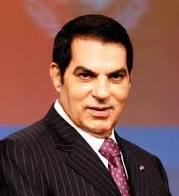 France 2 reports that deposed Tunisian President Zine El Abidine Ben Ali has died in Saudi Arabia after falling into a coma two days ago. He has been in Saudi Arabia since January 14.
France 2 reports that deposed Tunisian President Zine El Abidine Ben Ali has died in Saudi Arabia after falling into a coma two days ago. He has been in Saudi Arabia since January 14.
Ben Ali was the subject of a recent article on WL Central discussing Mubarak's order to the Egyptian Third Army to crush the demonstrators in Tahrir Square with their tanks after flying F-16 fighter bombers at low level over the protesters.
Previous Tunisia and Ben Ali coverage on WL Central:
2011-02-14 Senior Egyptian army officers ordered massacre
2011-02-13 Tales of Tyrants: Ben Ali, Mubarak & Suleiman
2011-02-06 Tunisia's Revolution Continues
2011-02-01 Tunisian Islamic Leader Returns as EU Freezes Ousted President's Assets
Update: All4Syria and Al Arabiya report that it was Syrian traffic police who beat up Imad Nasab, son of a shopowner in Hariqa, as stated on an opposition website on Friday. The 200 protesters blocked traffic for three hours until the interior minister came to the scene and arrested the policemen involved.
WL Central speculated three days ago, on the occasion of a Syrian court sentencing a teen blogger to five years in prison, that the patience Syrian president Bashar al-Assad so admired in his fellow citizens may soon wear thin. Assad escaped a scheduled day of rage on February 5, but today an extraordinary number of people objected to Syrian police beating Syrian citizen Emad Nasab.
 Authored by Saudiwoman
Authored by Saudiwoman
Remember, in a former post, when I said that Saudis were captivated and shocked by what happened in Tunis and Egypt but hadn’t collectively made up their mind about it? Well it appears that they have. Everywhere I go and everything I read points to a revolution in our own country in the foreseeable future. However we are still on the ledge and haven’t jumped yet.
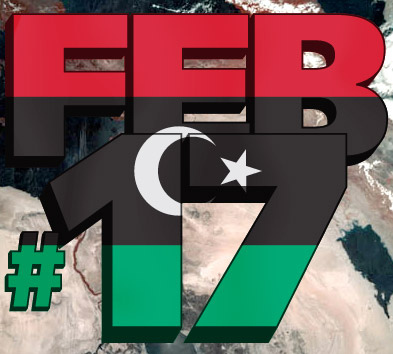 *Author's note: Previously, it had been mentioned that a Part 2 of a feature story titled "WikiLeaks Vindicates Those Behind Unfolding Revolutions" would run before the week was over. Publication has been postponed so proper coverage of cables and news related to Yemen, Algeria, Libya, Bahrain, Iran, Iraq, etc can be focused on instead.
*Author's note: Previously, it had been mentioned that a Part 2 of a feature story titled "WikiLeaks Vindicates Those Behind Unfolding Revolutions" would run before the week was over. Publication has been postponed so proper coverage of cables and news related to Yemen, Algeria, Libya, Bahrain, Iran, Iraq, etc can be focused on instead.
Libyans are mobilizing for a “Day of Rage” today on February 17. Protesters in the early afternoon, according to a member of the Libyan Youth Movement, were reported to be moving to the Security Headquarters in Benghazi. The protests are said to be gaining numbers and are headed for Maydan al Shajara once more, a location that had been the site of gunfire and petrol bombs.
The same individual also reports shortages of medical supplies at Al Bayda hospital and urges international health organizations to help out. And the movement member shared reports of people in Benghazi managed to chase away “pro-government Gaddafi thugs” by throwing rocks at them.
Many in Libya believe ahead of the “Day of Rage” that the Gaddafi regime was planning to threaten Libyans with live fire and the targeting of family members if they participated in anti-government protests. Also, it was reported that Gaddafi was having government employees go protest at pro-Gaddafi rallies, and, if they refused, they would be fired.
Cables released on Libya provide context for the protests that are unfolding. 09TRIPOLI192 from February 2009 titled, “For Ordinary Libyans, It’s the Economy Stupid,” breaks down what might be frustrating Libyans and why Egypt may have been just what they needed to be inspired to take action. The cable suggests Libyans are more interested in economic democracy, not political democracy:

A facebook group has appeared calling for a protest "against corruption" in Qatar. "Support the revolution, Qatar February 27 against corruption." Neither the posted info nor the comments have issued more specific demands, than to "topple this corrupt regime" but 500 people have liked the page which has been up since around February 8.
The current Emir of Qatar, Hamad Bin Khalifa took control from his father in 1995. He has been criticized in the Arab world for meeting with Israeli minister Tzipi Livni, and for supporting the Al Jazeera news network which is critical of other Arab governments and frequently airs western and Israeli views.
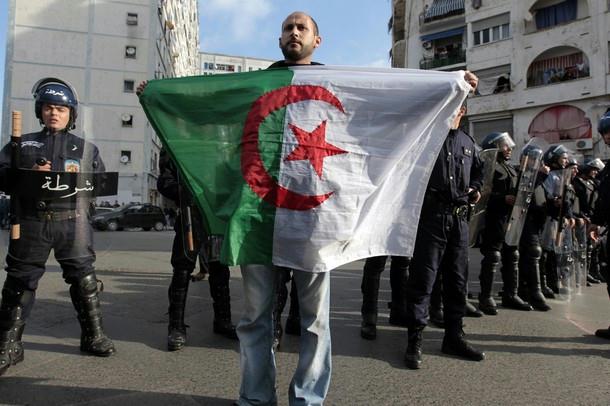 (update below)
(update below)
Algerians that participated in a “Day of Rage” on February 12 continue to come out and protest. The news site Bikya Masr reports “Algerians pledge to continue to demonstrate until President Abdelaziz Bouteflika has been removed from power.” The protesters inspired by Egypt intend to begin to engage in sit-ins that can hopefully bring the country to the brink like Egyptians brought their country to the brink and forced President Hosni Mubarak from power.
Demonstrators chant, “Bouteflika out,” but not all of them. Some just want democratic reforms. Those demonstrating have mostly been Islamists or pro-democracy activists.
They talk about the fear being gone after what unfolded in Egypt and Tunisia.

Tal al-Mallouhi was arrested in Syria in December 2009, and yesterday, at 20 years old, was sentenced to five years in prison for spying, an action condemned by the Committee to Protect Journalists. She had written blog articles saying she wished to play a role in shaping the future of Syria, and asking US president Barack Obama to do more to support Palestine. She was charged with "revealing information that should remain hushed to a foreign country". An official told Al Jazeera she "deserved 15 years in prison but her sentence was commuted considering her age".
PJ Crowley, of the US state department, "sharply criticized" Syria's handling of this case. Obama recently interfered in a similar case in Yemen, that time demanding that a Yemeni journalist remain in prison for reporting the truth about a US attack in Yemen that killed 55 civilians.
 Saudi Arabian Mufti Sheikh Yusof al-Ahmad warned that Saudi Arabia could also face a revolution unless steps are taken to fight widespread unemployment and poverty. He criticized government spending as wasteful and called for supervision over public spending. In particular, he criticized a recent USD 29.8 billion spent on King Abdullah University. The unemployment rate in Saudi Arabia is 10.5% (official) or as much as 20% (unofficial) and parliament recently announced that 22% of the population live below the poverty line.
Saudi Arabian Mufti Sheikh Yusof al-Ahmad warned that Saudi Arabia could also face a revolution unless steps are taken to fight widespread unemployment and poverty. He criticized government spending as wasteful and called for supervision over public spending. In particular, he criticized a recent USD 29.8 billion spent on King Abdullah University. The unemployment rate in Saudi Arabia is 10.5% (official) or as much as 20% (unofficial) and parliament recently announced that 22% of the population live below the poverty line.
WL Central has already reported one Saudi Arabian protest in an article on February 2 and another reported on February 13 along with a protest scheduled for February 18.
Yemen protests started in mid January with a self immolation and the arrest and release of Yemeni activist Tawakel Karman, and they have not really stopped since. A Day of Rage was organized for February 3 but tens of thousands were in the streets on January 27 as well as many smaller protests, throughout the time period. The last five days have seen a huge increase in the numbers in the streets, as well as the violence directed at them. According to Human Rights Watch, president Ali Abdallah Saleh’s security forces have attacked demonstrators, activists, lawyers, and journalists in Yemen capital city Sanaa without justification. An estimated 3000 people protested from Sana'a University, clashing with police and pro-Saleh demonstators using batons, rocks, and occasionally knives. Today in Taiz, over 2500 people are refusing to leave and are forming committees and buying tents to continue occupying their protests grounds.
The videos below show the current size and emotion of some of the protests.
January 27, 2011
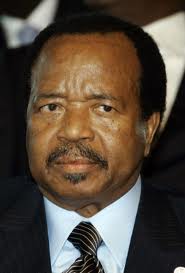 Despite all search engines showing nothing but football for news in Cameroon, Twitter insists they are having a revolution, beginning with protests on February 23. The hashtags are being used, but there is very little under them. The Cameroon Tribune reports “Thousands of youths last Thursday, February 10 marched in the streets of Yaounde to demonstrate their patriotism and commitment to preserve peace, stability and development in Cameroon. The march in support of President Paul Biya and the institution he incarnates was in reaction to the wind of violence and destabilisation of State institutions blowing across some African countries.”
Despite all search engines showing nothing but football for news in Cameroon, Twitter insists they are having a revolution, beginning with protests on February 23. The hashtags are being used, but there is very little under them. The Cameroon Tribune reports “Thousands of youths last Thursday, February 10 marched in the streets of Yaounde to demonstrate their patriotism and commitment to preserve peace, stability and development in Cameroon. The march in support of President Paul Biya and the institution he incarnates was in reaction to the wind of violence and destabilisation of State institutions blowing across some African countries.”
 For those in countries that are working to topple brutal and oppressive regimes, there is a power that WikiLeaks cables have, one that can be tremendously beneficial. Cables from Tunisia, Sudan, Yemen, Syria, Algeria, Bahrain, Libya, Jordan, and Saudi Arabia all illuminate why the people of those countries would rise up against their governments. They compel people to acknowledge the magnitude of abuses and suffering that the people have been experiencing under autocratic regimes.
For those in countries that are working to topple brutal and oppressive regimes, there is a power that WikiLeaks cables have, one that can be tremendously beneficial. Cables from Tunisia, Sudan, Yemen, Syria, Algeria, Bahrain, Libya, Jordan, and Saudi Arabia all illuminate why the people of those countries would rise up against their governments. They compel people to acknowledge the magnitude of abuses and suffering that the people have been experiencing under autocratic regimes.
The planned “Day of Rage” protests being met with security forces and violence in Algeria, Iran and Yemen can be further understood thanks to the cables. The clashes in Bahrain and the brewing unrest in Syria can be illuminated because of the analysis from US diplomats in the cables. And, what continues to unfold in Egypt and Tunisia and inspire people in countries like Iraq, Jordan, Kuwait, Saudi Arabia, Sudan and Libya, whose people intend to hold their own “Day of Rage” on February 17.
Egyptian President Hosni Mubarak has resigned and is said to be in a coma or "psychologically devastated". His appointed replacement, Omar Suleiman, is nowhere to be found and the Egyptian army has taken over. There has been wild celebration in the streets of Cairo but there is good reason to think that all is not well and the danger is far from over. Thanks to the reporting of Robert Fisk, we now have the information upon which to arrive at the terrible conclusion of the title. Senior Egyptian army officers, the very ones that are exercising a military dictatorship now, where quite willing only two weeks ago, to carry out a wholesale slaughter of the thousands of protesters in Liberation Square.
Abdulmunir Mohammed from Mosul, a married man with four children, died yesterday after setting himself on fire in what is being reported as a continuation of Iraqi protests against unemployment. Today several hundred Iraqis held a Valentine's Day demonstration at Baghdad's Tahrir Square to call on their leaders to love Iraq rather than rob its resources, an organiser, Karnas Ali, a young engineer told AFP. "We do not want Valentine's Day to be only one day of love but a celebration for reform, democracy, citizenship and freedom."
On February 11 hundreds of lawyers marched in the streets of Baghdad, Karbala, Kut, Ramadi and Amara to protest corruption and unemployment, and call for open scrutiny of secret prisons and access to legal advice for prisoners. On the 10th, an anti corruption official had made a statement saying that ministerial coverup of corruption was frequent. Around 500 people marched in Baghdad that day. Media representatives had already marched in protest against high usage fees.
In an Al Jazeera video on February 9 (below) a government official states, "We know the suffering of the citizens. But we cannot deal with that by a decree. Electricity cannot come back by a ruling from the minister's cabinet saying tomorrow electricity should be running 24 hours a day." However, the government did just that on Saturday the 12th, promising Iraqi citizens their first 1,000 kilowatt-hours of electricity each month free of charge, courtesy of the Ministry of Electricity. In October the government had doubled the price of electicity. The government has promised to increase power imports from Iran and they are also talking with Syria and Turkey and planning to improve their own electrical output.
 Twitter and Gulf News reported a Kuwaiti group called Fifth Fence (AlSour AlKhamis) using Twitter to attempt to organize a mass rally outside parliament on February 8. That protest has since been rescheduled to March 8. "We at the Fifth Fence call on the Kuwaiti people to assemble at parliament ... on Tuesday at 11am (0800 GMT) to press for our legitimate right of holding sessions and to declare our rejection of the continuity of this government and its undemocratic practices." the group wrote, inviting opposition MPs to join them.
Twitter and Gulf News reported a Kuwaiti group called Fifth Fence (AlSour AlKhamis) using Twitter to attempt to organize a mass rally outside parliament on February 8. That protest has since been rescheduled to March 8. "We at the Fifth Fence call on the Kuwaiti people to assemble at parliament ... on Tuesday at 11am (0800 GMT) to press for our legitimate right of holding sessions and to declare our rejection of the continuity of this government and its undemocratic practices." the group wrote, inviting opposition MPs to join them.
The protests were, by some accounts, related to an investigation into Minister of the Interior Shaikh Jaber al-Khalid Al Sabah about the death by torture of a 35 year old Kuwaiti citizen, Mohammad Gazzai Al Mutairi, at a police station after he was arrested for possessing alcohol. The government and parliament postponed sessions for six weeks which was described as unconstitutional by the opposition. The death occurred on January 11 after six days of torture, and resulted in the arrest of sixteen policemen and the resignation of the Shaikh Jaber, a member of the family that has ruled Kuwait since 1756, but the cabinet asked Jaber to stay on.
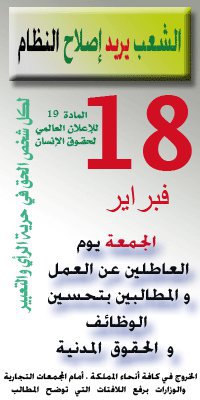 On February 2, WL Central asked Will Saudi Arabia protest? and showed a video with Saudi Arabians doing just that, despite all protests and public assemblies being illegal in Saudi Arabia. Now another video has surfaced (below) along with a facebook page calling for a protest day on February 18th for "those who are unemployed, who demand better work conditions and better civil rights." The facebook page is calling for:
On February 2, WL Central asked Will Saudi Arabia protest? and showed a video with Saudi Arabians doing just that, despite all protests and public assemblies being illegal in Saudi Arabia. Now another video has surfaced (below) along with a facebook page calling for a protest day on February 18th for "those who are unemployed, who demand better work conditions and better civil rights." The facebook page is calling for:
- automobile factories to be opened in every major area and industrial training for young people.
- open factories and provide better training in the world of technology, programming and maintenance
- electrical plants in each region
- electric appliance factories to be opened.
- video game factories (like Playstation) to be opened in every area.
- food and dessert factories to be open in every region and jobs allocated for women.
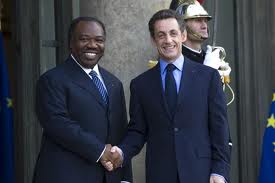 On January 25, as Egypt began the first day of its revolution, Andre Mba Obame declared himself president of Gabon and set up his own government, stating "We have information that Obame got 42% and Ali Bongo 37%, and that the results were practically inverted.". The incumbent president, Ali Ben Bongo, the late president's son, came to power after a widely criticized election in August 30, 2009 which was followed by days of riots. Gabon was further inflamed in December when the parliament adopted a constitutional amendment allowing the president to extend his mandate in the case of an emergency. Opposition leader Zacharie Myboto at that time objected that "This leaves the door open to dictatorship."
On January 25, as Egypt began the first day of its revolution, Andre Mba Obame declared himself president of Gabon and set up his own government, stating "We have information that Obame got 42% and Ali Bongo 37%, and that the results were practically inverted.". The incumbent president, Ali Ben Bongo, the late president's son, came to power after a widely criticized election in August 30, 2009 which was followed by days of riots. Gabon was further inflamed in December when the parliament adopted a constitutional amendment allowing the president to extend his mandate in the case of an emergency. Opposition leader Zacharie Myboto at that time objected that "This leaves the door open to dictatorship."
On December 28, Wikileaks released a July 2009 US US state cable which showed senior Gabonese officials in the Bank of Central African States (BEAC) accused of embezzling more than 18.3 billion CFA (about US$36 million) from the pooled reserves of the six states of the Central African Economic and Monetary Community (CEMAC) over the past five years. "According to the Embassy source, senior Gabonese political`leadership, including the late President Omar Bongo and his son, Defense Minister and presidential hopeful, Ali Bongo benefited from the embezzlement. The source said Gabonese officials used the proceeds for their own enrichment and, at Bongo's direction, funneled funds to French political parties, including in support of French President Nicholas Sarkozy. Asked who received the funds, the BEAC official responded, "both sides, but mostly the right; especially Chirac and including Sarkozy." The BEAC official said "Bongo was France's favorite President in Africa," and "this is classic France Afrique." The BEAC official said his own government and others would seek jail time for some of the officials, but that there would be pressure to deal delicately with the new Gabonese Government. Ali Bongo, he said, is close personal friends with BEAC Governor Anzembe."
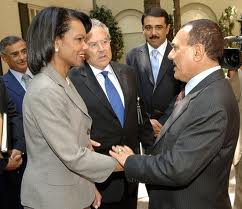 Protesters in south Yemen called for the secession of the once independent south today. Security forces were out early in the day with tanks and police to force protesters back inside. Scores of protesters were moved off of the streets of Aden, but dozens managed to get out in Crater, Khor Maksar, and Al-Mansura, and several hundred people in Zinjibar. Police in Al-Masura, fired warning shots and tear gas. Some reports say thousands of protesters were out in all provinces.
Protesters in south Yemen called for the secession of the once independent south today. Security forces were out early in the day with tanks and police to force protesters back inside. Scores of protesters were moved off of the streets of Aden, but dozens managed to get out in Crater, Khor Maksar, and Al-Mansura, and several hundred people in Zinjibar. Police in Al-Masura, fired warning shots and tear gas. Some reports say thousands of protesters were out in all provinces.
As WL Central reported on February 1, President Ali Abdullah Saleh had announced that he would step down after his second presidential term expires in 2013. Subsequent cables released by Wikileaks indicate that may have been more of a prearranged concession to the US than to the protesters. Cable 05SANAA1790 from June 2005 says regarding Saleh, "Domestically, however, he has run-out of reforms he can implement at no political cost to himself. Increasingly anxious about upcoming Presidential elections, and already preoccupied with succession, it is unlikely Saleh will allow a viable opposition candidate to challenge him in 2006. The visit is an opportunity to pressure Saleh not to amend the constitution so he may run again in 2013 by praising him for bringing Yemen to the point where he can rely on the system in place to produce a legitimate successor. The inducement here might be a public show of support via a greater role in public fora such as the G-8."
Abdul Ilah Shayi
 A February 20 protest has been planned to restore "the dignity of the Moroccan people and for democratic and constitutional reform and the dissolution of parliament." One of Morocco’s leading Islamist movements, Justice and Charity, which has an estimated 200,000 members and is banned from politics but tolerated, has called for “urgent democratic change.” It’s website states “It is unjust that the country’s riches should be monopolised by a minority.”
A February 20 protest has been planned to restore "the dignity of the Moroccan people and for democratic and constitutional reform and the dissolution of parliament." One of Morocco’s leading Islamist movements, Justice and Charity, which has an estimated 200,000 members and is banned from politics but tolerated, has called for “urgent democratic change.” It’s website states “It is unjust that the country’s riches should be monopolised by a minority.”
Abdesslam Yassine, leader of Justice and Charity does not challenge the monarchy itself, but refuses to recognise Mohammed’s religious title of Commander of the Faithful. He was put under house arrest for several years under King Hassan, but King Mohammed VI lifted the restriction shortly after coming to power in 1999. Morocco is a constitutional monarchy with an elected parliament, but the constitution allows the king to dissolve the legislature, impose a state of emergency and have a key say on the appointment of sensitive government portfolios, including the prime minister. Justice and Charity would like to replace the constitution with "a democratic one to mark a break with all aspects of autocracy ... and monopolisation of authority and national wealth and preserves the human dignity of the Moroccan citizen". “It’s an Islamism that is anti-establishment that is pushing for peaceful change,” said Islam expert Mohamed Darif of Justice and Charity. “It doesn’t talk about abolishing the monarchy.”
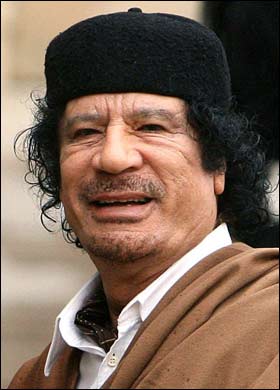 In Libya, the Revolution (Al-Thawra) refers not to the protests happening today, but to the revolution over 41 years ago which installed Brotherly Leader and Guide of the Revolution Muammar al-Gaddafi in power. The National Conference for the Libyan Opposition (NCLO) and Libyan activists are calling for a Libyan Day of Rage on February 17 against the abuses of 'the Revolution'. The NCLO has called for mass protests both in and outside of Libya to fall on the anniversary of the February 17, 2006 mass demonstrations in Benghazi against Gaddafi and his regime, which resulted in the deaths of dozens of protestors and the injury of many more.
In Libya, the Revolution (Al-Thawra) refers not to the protests happening today, but to the revolution over 41 years ago which installed Brotherly Leader and Guide of the Revolution Muammar al-Gaddafi in power. The National Conference for the Libyan Opposition (NCLO) and Libyan activists are calling for a Libyan Day of Rage on February 17 against the abuses of 'the Revolution'. The NCLO has called for mass protests both in and outside of Libya to fall on the anniversary of the February 17, 2006 mass demonstrations in Benghazi against Gaddafi and his regime, which resulted in the deaths of dozens of protestors and the injury of many more.
Gaddafi issued the first official response in private meetings over the last few days with Libyan political activists, journalists, and media figures. He issued severe warnings that they and their professions would be held responsible should they participate in any way in "disturbing the peace or creating chaos" in Libya. WL Central coverage of recent protests told of the fears which were sparked in Gaddafi by the Tunisian revolution. Gaddafi has spoken out against the revolution in Tunisia, and blamed the internet and Al Jazeera news for spreading 'lies' against former Tunisian president Ben Ali. He has also defended Egyptian president Mubarak, saying that the Mubarak family, estimated to be worth US$70 billion, is poor and cannot afford their clothes. He said that Libya is providing the Mubarak family with financial support and accused Israeli intelligence of instigating the Egyptian revolution.
On Sunday, the Palestinian Health Ministry in Gaza warned of an impending 'public health disaster', reported first on WL Central here. In a press release on the organization's Web site, the Ministry states that the situation could include the death of hundreds of people, including cancer patients, those with tumors, and those in need of both kidney dialysis and intensive care.
Gaza War
Gaza's long-suffering has increased exponentially since Operation Cast Lead in December 2008, when Israel launched air attacks on Gaza in response to rocket and mortar fire by Hamas. The incident was preceded by an Israeli incursion into Gaza in November 2008 "to destroy what Israel said was a tunnel on the Gaza-Israel border dug by militants to infiltrate into Israel and abduct soldiers." (Source: Wikipedia)
Theme by Danetsoft and Danang Probo Sayekti inspired by Maksimer